People
Dr. Mahajan’s lab provides an immersive, intensive training environment for students and fellows to discover the molecular mechanisms that cause blindness and develop therapies to prevent vision loss. Highly collaborative research teams are made up of scientists, surgeons, and engineers from around the world, interacting on a daily basis and using advanced scientific methods.
Graduate Students
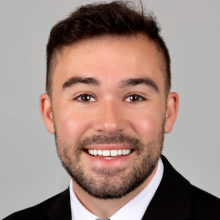
Dimitrios Arhontoulis M.S.
Dimitri joined the lab in 2025. He received his bachelor’s and master’s degrees in biomedical engineering from Drexel University in Philadelphia, PA. He is now finishing an M.D., Ph.D. program at the Medical University of South Carolina. In 2022, he was awarded an NIH F30 fellowship, which focused on designing tissue grafts to study tissue-level inflammation and developing hypoimmunogenic grafts for transplantation. Dimitri is pursuing a residency in ophthalmology. His research interests include uveitis, subretinal gene therapies, disease modeling, and biomarker identification.
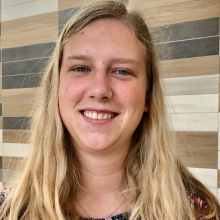
Ditte Kamille Rasmussen B.S.
Ditte joined the lab in 2022 as a visiting student researcher from Denmark. She received her bachelor's degree in medicine from Aarhus University in 2020 and is currently working towards her master's degree. Ditte's research interests include genetic diseases of the retina. Her current work focuses on genetic components of age-related macular degeneration.
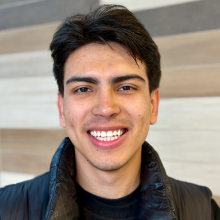
William Rojas-Carabali M.D., M.S.
William joined the lab in 2025. He is a Knight-Hennessy Scholar pursuing a Master of Science in Translational Research and Applied Medicine at Stanford University School of Medicine. He earned his medical degree from Universidad del Rosario, Colombia and a master’s in data science from Pontificia Universidad Javeriana Cali. Prior to Stanford, William served as a research fellow at Nanyang Technological University’s Lee Kong Chian School of Medicine and as a visiting scholar at Tan Tock Seng Hospital in Singapore. William’s research interests include ocular inflammatory diseases, ocular cancer, ophthalmic imaging and artificial intelligence, translational biomarker discovery, and bridging computational science with clinical applications.
Postdoctoral Fellows
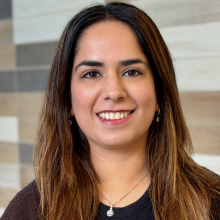
Akanksha AkankshaAkanksha, Ph.D.
Akanksha joined the lab as a Postdoctoral Fellow in 2025 after earning her Ph.D. in Computational Biology from IIIT Delhi, India. She also worked as a visiting graduate researcher at UCLA during her Ph.D. Her doctoral research involved developing machine-learning-based tools to identify disease biomarkers in biofluids. Her current work focuses on using computational approaches for translational ophthalmic research.

Ahmad Al-Moujahed M.D., Ph.D., M.P.H.
Ahmad joined the lab in 2019. He graduated from Damascus Medical School, Syria. He then completed a research fellowship at Massachusetts Eye and Ear Institute, followed by a PhD in experiment pathology from Boston University School of Medicine. Ahmad also holds a master’s degree in public health from Northeastern University. Ahmad is working with data scientists in lab to identify molecular pathways in human retinal and inflammatory eye disease.

Madhumeeta Chadha Ph.D.
Madhumeeta joined the lab in 2024 after earning her Ph.D. in Cancer Biology from the Institute of Cancer Research, London. Her research focuses on multi-omics molecular profiling, leveraging proteomics and transcriptomics to identify and validate clinically relevant therapeutic biomarkers and targets, particularly in retinal diseases. She also applies advanced bioinformatics methodologies to support data-driven translational research.
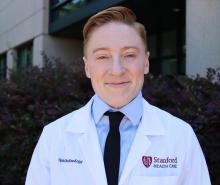
Chase A. Ludwig M.D., M.S.
Chase joined the lab in 2018. He completed his undergraduate degree at Duke University and then his medical school training, a Master's in Epidemiology and ophthalmology residency, at Stanford University Medical School. He is interested in understanding the mechanisms of myopia and improving treatment and prevention of the resulting pathology. He worked with Dr. Mahajan as a resident and completed his surgical fellowship at Harvard's Massachusetts Eye and Ear Institute. Chase is a Vitreoretinal Surgeon and Assistant Professor in Ophthalmology at the Byers Eye Institute, at Stanford University and continues to work with Dr. Mahajan on the molecular genetics of myopia and biomarkers of vitreoretinal disease.

Gabriel Velez M.D., Ph.D.
Gabe joined the lab in 2016. He received his bachelor’s degree in molecular biology from Winona State University in 2014 and his M.D., Ph.D. from the University of Iowa in 2021. He is currently atttending an ophthalmology residency at Stanford University. Gabe is studying the structure of the calpain-5 (CAPN5) protein and its role in the development of Autosomal Dominant Neovascular Inflammatory Vitreoretinopathy (ADNIV), a rare blinding eye disease. His research interests include translational proteomics, structural biology, biophysical chemistry, enzymology, drug design, molecular modeling, and bioinformatics. He was awarded a NIH F30 grant in 2017.

Tsai-Chu Yeh M.D.
Tsai-Chu joined the lab in 2024 after completing her ophthalmology residency and vitreoretinal fellowship at Taipei Veterans General Hospital, Taiwan. She is currently an Assistant Professor at National Yang-Ming Chiao Tung University. Her research is centered on uncovering the mechanisms behind vitreous syneresis and synchysis, with the goal of advancing treatment and prevention strategies for retinal detachment.
Undergraduate Students

Architesh Prasad
Archi joined the lab in 2025 as a summer research fellow. He is an undergraduate at Caltech studying computational chemical engineering. His research interests include multi-omics and developing computational models for medical applications, including drug discovery.
Scientists and Technicians
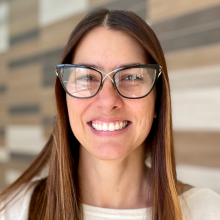
Andreia Fernandes Damaso Goncalves Ph.D.
Andreia joined the lab in 2024. She earned her PhD in 2016 from the University of Coimbra, Portugal and completed her post-doctoral studies at the University of Michigan. From 2022-2024 she served as a Discovery Senior Scientist at Johnson&Johnson. She has over 15 years of translational research experience in ophthalmology and is currently a research development strategist in the lab.

Joel Franco B.S.
Joel joined the lab in 2022. He is a graduate of the University of California, Irvine. He is working on mouse models of human eye disease.

Aarushi Kumar B.S.
Aarushi joined the lab in 2020 as a Clinical Research Coordinator. She earned her Bachelor of Science in Biology from the University of Houston in 2019. She worked as a nursing assistant and medical scribe and has research experience in NMR, gene screening, and cardiovascular diseases. Her research interests include gene therapy, proteomics, and the genetics of eye disease.
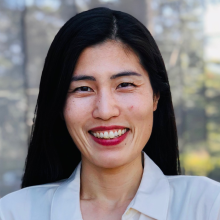
Soo Hyeon Lee Ph.D.
Soo Hyeon joined the lab in 2020. She received her bachelor’s degree in 2005 and Ph.D. in 2011 in the Department of Biological Sciences from KAIST (formerly the Korea Advanced Institute of Science and Technology), Republic of Korea. She was a postdoctoral fellow in the Department of Chemistry and Applied Biosciences at ETH Zurich, Switzerland. From 2017 to 2019, she was a research professor in the Department of Chemistry at KAIST. Soo Hyeon’s research interests include gene therapy using CRISPR and RNAi technology, drug formulation, and development of rare disease therapies. She is working on the development of a gene/drug delivery system for the treatment of eye diseases. She is a Mahajan Lab group leader.
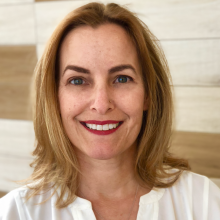
MaryAnn Mahajan B.A.
MaryAnn joined the lab in 2008. She earned her B.A. in English at the University of California, Berkeley and attended graduate school at the University of California, Los Angeles where she earned a secondary teaching credential. She is a writer and editor and also performs histological phenotyping of mouse eyes.
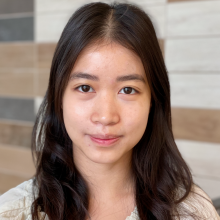
Gia Han (Hazel) Ngo B.S.
Gia Han Hazel Ngo joined the lab in 2023. She earned her B.S. in biochemistry from the University of Illinois-Chicago and plans to pursue a Ph.D. Prior to joining the lab, she studied the MED1 subunit using CRISPR and cell biology. Her research interests include biochemistry and gene therapy.
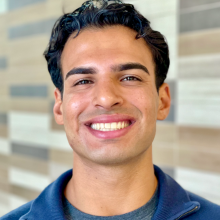
Aneal Manohar Singh B.A.
Aneal joined the lab in 2025 after earning a B.A. in Molecular and Cell Biology from UC Berkeley. He plans to pursue an M.D., having previously studied rAAV transduction optimization and its immunological effects. His research interests focus on transduction pathways and genome engineering.
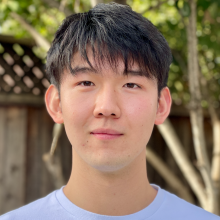
Ray Yip B.S.
Ray joined the lab in 2023. He earned his Bachelor of Biomedicine Degree in molecular biology from the University of Melbourne in 2022. Prior to joining the lab, he studied CRIPSR base editing in stem cells and kidney Organoids. His current research focuses on gene therapy, while also exploring the intersection of biology and artificial intelligence.
Affiliated Faculty
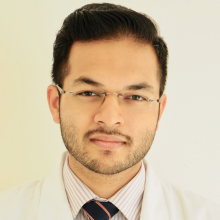
Mayank Bansal
Mayank is a vitreoretinal surgeon. He completed his residency in ophthalmology at the All India Institute of Medical Sciences and then spent a year at the University of Iowa in 2014 with Dr. Mahajan. Upon certification by the International Council of Ophthalmology, he was awarded a scholarship for fellowship in vitreoretinal surgery by the ICO at the University of California, Los Angeles. His research focuses on diabetic retinopathy, macular degeneration, complex vitreoretinal surgeries, and innovations in ophthalmology.
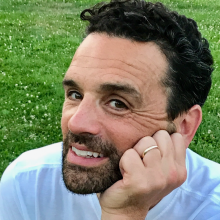
Alexander G. Bassuk M.D., Ph.D.
Alex has been a key collaborator with the Mahajan Lab since 2012. He is a pediatric neurologist at the University of Iowa whose laboratory focuses on the molecular biology, protein biochemistry, and genetic mechanisms in human diseases and in animal models. Along with a diverse cross-disciplinary team of researchers, he is pursuing a collaborative and innovative approach to use proteomics, fruit flies, zebrafish, and mice to rapidly translate basic science findings into clinical treatments. His investigational group is well poised to leverage novel in vivo techniques into new treatments for epilepsy and other human diseases.

Antoine Dufour Ph.D.
Antoine is an assistant professor and principal investigator of a lab at Calgary University in Calgary, Canada. His team works on understanding how proteolytic post-translational modifications lead to the activation or inactivation of immune responses in inflammatory diseases. They focus on proteases and their substrates on a cell, tissue, or organism-wide scale. Antoine has been collaborating with the Mahajan lab to teach trainees proteomic methods and to analyze eye disease biomarkers.
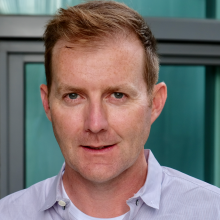
Mark Smith Ph.D.
Dr. Smith and Dr. Mahajan have been collaborating since 2018 on drug development for retinal disease. Dr. Smith joined Stanford ChEM-H in May 2013 as the Head of the Medicinal Chemistry Knowledge Center. He graduated with a Ph.D. from the University of Manchester Institute for Science and Technology, where his research focused on the application of Lewis acid catalyzed hetero Diels-Alder reactions to the synthesis of novel disaccharide structures. In 2000, Dr. Smith joined the research laboratory of Prof. David Crich at the University of Illinois at Chicago. Here his research focused on the generation of new reagents for the synthesis of beta-mannosides from thioglycosides. From 2002 to 2013, Dr. Smith worked as a medicinal chemist in Roche’s research facilities both in Palo Alto, CA and then Nutley, NJ, where he specialized in antiviral research. Smith and Mahajan co-mentor students and medicinal chemistry postdoctoral fellows developing small-molecule drugs for a variety of eye disease proteins.

Prithvi Mruthyunjaya M.D., M.H.S.
Dr. Mruthyunjaya has been a collaborator since 2017. He is an Associate Professor of Ophthalmology at Stanford University, member of the Vitreoretinal Surgery Service and Directs the Ocular Oncology Service at the Byers Eye Institute. He completed a fellowship in Vitreoretinal Surgery at Duke University and a second fellowship in Ocular Oncology at Moorfields Eye Hospital in London, England. Dr. Mruthyunjaya cares for patients with conditions related to cancer of the eye. With Dr. Mahajan, they built and direct the department’s surgical tissue biorepository. They are the recipients of a Cancer League grant to identify biomarkers of eye cancer, and they are working to identify much needed therapies for metastatic eye cancer.

Natalia Callaway M.D., M.S.
Natalia joined the lab in 2017. She completed her B.S. at Johns Hopkins University where she majored in behavioral biology and neuroscience. She attended medical school at Stanford University where she obtained a dual degree in medicine and a Master's in Epidemiology. She went on to complete her residency at Bascom Palmer Eye Institute. She returned to Stanford for her vitreoretinal surgical training. She has secured multiple training grants including the Vitreoretinal surgery foundation award and the NIH Clinical Scientist Training Award. Her research focus is on novel surgical methods and women’s issues in vitreoretinal disease. She splits her time between Stanford and Genetech where she leads clinical trials for reitnal disease.
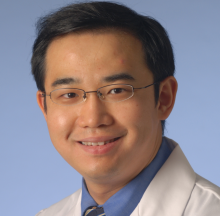
Yang Sun M.D., Ph.D.
Dr. Yang Sun is a clinician-scientist in glaucoma and an Associate Professor of Ophthalmology at Stanford University and Byers Eye Institute. Dr. Sun received his B.A. in Biophysics from Johns Hopkins University, followed by an M.D., Ph.D. from Washington University School of Medicine. He completed Ophthalmology residency at Stanford University and a prestigious Heed fellowship at the University of Michigan, Ann Arbor. He has been funded by the National Eye Institute, Veterans Administration, American Glaucoma Society, Lowe Syndrome Association, Knights Templar Eye Foundation, and Matilda Ziegler Foundation. Dr. Sun holds several U.S. patents on novel regulators of eye pressure and is the primary investigator on a number of glaucoma clinical trials.
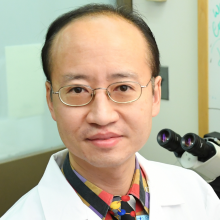
Stephen Tsang M.D., Ph.D.
Steve has been collaborating with the Mahajan Lab since 2008. He is a Professor of Ophthalmology and Pathology and Cell Biology at Columbia University. Steve is a pioneer in genome surgery in stem cells. His research focuses on reprogramming the metabolome as a therapy for patients with retinal degeneration. His expertise includes Genetic Disorders, Genetic Testing, Pediatric Genetics, Retinal Disorders, Eye Genetics, Clinical Genetics, Adult Genetics, Retinopathy, Marfan's Syndrome, and Macular Degeneration.
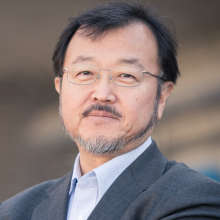
Soichi Wakatsuki Ph.D.
Dr. Wakatsuki and Dr. Mahajan have been collaborating since 2017. Dr. Wakatsuki is a Professor of Photon Science at the SLAC National Accelerator Laboratory and Professor of Structural Biology at Stanford’s School of Medicine. He received his B.S and M.S. degrees in Chemical Engineering from University of Tokyo, and his Ph.D. degree in Chemistry from Stanford University in 1991. After postdoctoral studies on time-resolved x-ray crystallography of enzyme reactions in Oxford (1990 to 1994), he moved to Grenoble, France in 1994 to work at the European Synchrotron Radiation Facility (ESRF) where he led the Joint Structural Biology Group. After positions in Japan, Soichi returned to Stanford in 2013. Wakatsuki and Mahajan co-mentor students and postdoctoral fellows working on the integrative and functional structural biology of eye disease proteins.
Alumni
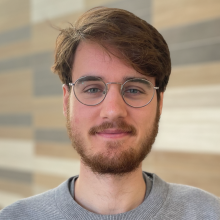
Fabio Bigini
Fabio is a MSc student in biomedical research at Wageningen University & Research. He joined the lab in 2022 as a visiting student researcher from the Netherlands. He is interested in how CRISPR and Gene Therapy cure diseases and how computational and machine learning methods can improve the efficacy and safety of these technologies. His current research focuses on the design and validation of CRISPR-Cas variants which target multiple genes involved in Glaucoma and Age-related Macular Degeneration.

David Dennis Ph.D.
David Dennis joined the Mahajan lab in February 2022 after a postdoc at the University of Pavia in Italy where he worked on the synthesis of type-II polyketide natural products. He completed his doctoral studies under the advisement of Prof. David Sarlah at the University of Illinois Urbana-Champaign. There his research focused on the total synthesis of anthracycline and cannabinoid natural products. In his current role, David works closely with the MCKC in medicinal chemistry and drug discovery.
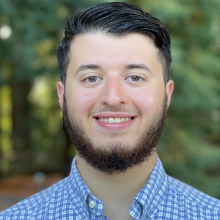
Samy Awwad
Samy is studying pre-med at Stanford and is interested in clinical ophthalmology and public health. His lab research interests include using proteomics to find therapeutic biomarkers for cancers of the eye, innovating molecular surgery, and streamlining cataract surgeries. He aspires to be a neuro-ophthalmologist serving under-privileged communities.
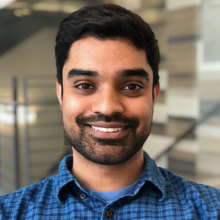
Teja Chemudupati B.S.
Teja joined the lab as a Clinical Research Coordinator in 2018. He has been at Stanford University since 2016 in the Stanford Center on Longevity. Teja earned his B.Sc. in Human Biology at UC San Diego and has clinical experience from his time as a critical care EMT. His research interests include CRISPR gene editing, neuroscience of aging, and exploring an interdisciplinary approach to research-based medicine.
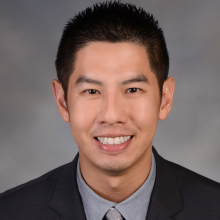
Eric Chin, M.D.
Eric was a lab member from 2014 to 2016 and continues to be a collaborator. He graduated from the University of California Berkeley with a Bachelor’s Degree in Bioengineering. He then received his Medical Degree from Chicago Medical School and went on to complete his ophthalmology residency at the University of California Davis and his surgical vitreoretinal fellowship at the University of Iowa. As a fellow his research focused on imaging and novel treatments for various retinal diseases. Eric is trained in all aspects of vitreoretinal medicine and surgery, as well as uveitis and ocular tumors. He serves as Clinical Faculty at Loma Linda University and the Loma Linda Veterans Affairs Hospital where he lectures and teaches residents.
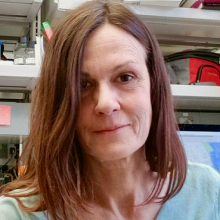
Diana Colgan Ph.D.
Diana has been a scientist and editor in the lab since 2014 with expertise in molecular biology and gene transcription. She earned a Ph.D. in Biology from Columbia University and completed post-doctoral work at Rockefeller University.
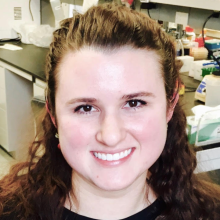
Lucy Evans B.S.
Lucy is an M.S.T.P. student who joined the lab in 2016 and is continuing in the Bassuk lab. Lucy received her bachelor's degree in Biology from Bowdoin College in 2012. She is currently exploring ocular trauma and inflammation after traumatic brain injury in mice (TBI). Utilizing the retina as an extension of the central nervous system, she established ocular damage as a less-invasive approach to gauge TBI severity and response to treatment. By teasing out mechanisms of damage and repair caused by inflammation secondary to TBI, she identified therapeutic targets to improve outcomes post-injury as well as enhancing the quality of life of those injured. She is pursuing a residency in pathology at the University of Washington.
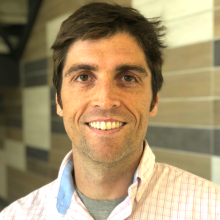
Paul Finn Ph.D.
Paul was a member of the Mahajan Lab as a postdoctoral research fellow and member of the ChEM-H Medicinal Chemistry Knowledge Center in 2018. He completed his Ph.D. in Organic Chemistry from Temple University in 2015 and in 2016 continued his studies at the California Institute of Technology. Paul was awarded an NIH Postdoctoral Fellowship in 2017 to pursue small molecule inhibitors of DNA-protein binding. Paul was developing small molecule protease inhibitors for the treatment of Autosomal Dominant Neovascular Inflammatory Vitreoretinal (ADNIV). His research interests include the development of chemical tools and therapeutics for the study of aberrant cellular signaling in muscular and neurological disease.

Anuradha Gore B.S.
Anu was a member of the Mahajan Lab from 2014-2017. She completed an undergraduate honor's thesis in the lab researching targets of CAPN5. She earned her B.S. in Human Physiology and Biology from the University of Iowa in May 2018 and has been accepted to the University of Iowa Medical School for the Fall of 2020.
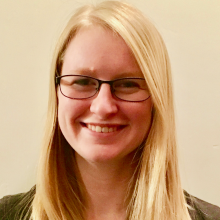
Nicole Hehr B.A.
Nicole was a member of the Mahajan Lab in 2017. In 2018 while working with Dr. Alexander Bassuk, she received a grant from the Iowa Neuroscience Institute to explore inflammation in the retina post traumatic brain injury. She graduated in May 2019 from the University of Iowa with honors and highest distinction in ancient civilizations. She received a Fulbright grant to teach English in Italy during the 2019-2020 school year and plans to attend medical school in the fall of 2020.
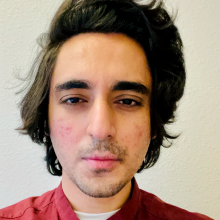
Saif Khan B.S.
Saif joined the Mahajan lab in 2015 as an undergraduate from the University of Bath in England. He pursued and helped solve the first X-ray crystal structure of calpain-5 and performed various structural biology techniques to study protein stability and conformation change. After spending a year in the lab, he returned to England to complete his B.S. in Biochemistry and later joined the Protein and Crystallography Facility at the University of Iowa. Saif has been accepted into the Molecular Biology graduate program at USC for fall 2021 where he will be focusing on Cryo-Electron Microscopy.

Shiloh Kluding B.S.
Shiloh joined the Mahajan lab in 2023. She earned her B.S. in biological sciences at UC Santa Barbara where she gained experience in cellular and molecular biology research while studying regeneration in tunicates. She plans to pursue a PhD and is interested in cellular therapeutics and accessible scientific communication. Her current research focuses on investigating therapeutic targets in uveal melanoma using cytotoxicity assays and in vitro models of the disease.
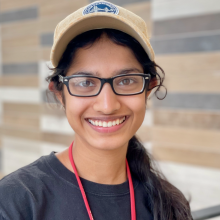
Caitlin Kunchur
Caitlin is a first-year undergraduate student planning on studying bioengineering or biomedical computation. She is currently interested in drug design, personalized medicine, and molecular diagnostics. On campus, she is involved in Stanford Students in Biodesign (SSB) and is a member of Stanford’s Biological Interdisciplinary Open Maker Environment (BIOME).

Angela Li B.S.
Angela Li was a medical student at Stanford University. She joined the lab in 2018 and applied bioinformatic tools to characterize genetic eye diseases. She is interested in functional genomics and proteomics, translational bioinformatics, precision medicine, and diseases of the eye. She is currently an ophthalmology resident at Duke Univeristy and continues to work on proteotype-phenotype relationships in genetic eye disease.

Daniel Machlab
Daniel completed a masters degree in computer engineering. He used big data analytics to understand patterns in retina tissues and diseases. Additionally, he was involved in making tools for researchers to manage and share experimental data. His research helped identify biomarkers for tissue diseases using his bioinformatics skills. He is currently an AI software engineer at VMware.

Monica Manmadkar
Monica is a second-year undergraduate at Columbia University's Barnard College in New York City. She is majoring in computational biology and is interested in the intersection of technology and structural biology. She hopes to find a way to integrate her passion for bioinformatics in precision medicine and drug development.
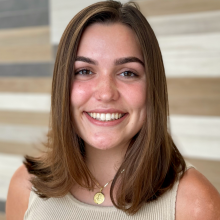
Elena Mujica
Elena is a bioengineering student at the University of California Berkeley, concentrating in synthetic and computational biology. She is most excited about the potential applications of genetic engineering, from curing heritable diseases to better feeding the planet. Her career aspirations are to obtain her doctorate degree and work in industry, with a focus on global health. At UC Berkeley, she is a team member and intern director for the Berkeley iGEM Team and is involved with the Bioengineering Honors Society (BioEHS).

Benjamin Ng B.A.
Benjamin received his B.A. from the University of Cambridge in 2016. He is in medical school at Christ Church, University of Oxford and plans to graduate in 2019. He received a competitive grant from the Oxford University Clinical Academic Graduate School to help fund a medical elective in Dr. Mahajan's lab where he researches the proteomics of wet age-related macular degeneration.

Huy Nguyen M.D.
Huy joined the lab in 2019 and is a surgical fellow at Stanford. He completed his undergraduate degree at Harvard, Medical School at Columbia University, and his ophthalmology residency at Harvard’s Massachusetts Eye and Ear Institute. His interests lie in exploring novel technologies for the diagnosis and treatment of retinal conditions. Huy is helping to identify biomarkers for eye cancer.
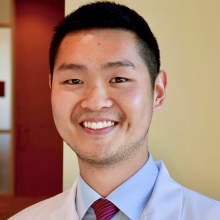
Jong Park M.D.
Jong joined the lab in 2018. He completed his undergraduate degree at the University of Toronto and medical school at Duke University. He completed a genetics fellowship as a Howard Hughes medical research fellow at Harvard’s Boston Children's Hospital. His research interests are in molecular genetics, uveitis, and retina. In the Mahajan Lab Jong uses human tissues to explore novel mechanisms and treatments for retinal inflammation. He is pursuing a surgical retina fellowship in Michigan.

Dylan Parsons Ph.D.
Dylan joined the lab in 2019. He received his bachelor’s degree in chemistry from SUNY Geneseo in 2014 and completed his Ph.D. in chemistry at the University of Rochester. Dylan’s research interests included complex molecular synthesis and structure guided design of biologically relevant targets. His focuse wan on the development and optimization of inhibitors for targets associated with eye disease. He joined Revolution Medicines as a medcininal chemist.
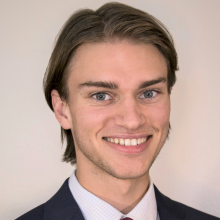
Ted Paulson
Ted is a computer engineer at Amazon. He was in the Mahajan lab as an undergraduate. He used computing and data tools to provide researchers with data analysis of proteins. Ted worked with database systems, programming tools and experimental proteomic data to allow researchers to better understand and access data. His research helped scientists more effectively analyze data and provide more efficient methods to find markers for disease. He is now a sofware engineer at Amazon.

Richard Phan
Richard is a first-generation sophomore undergraduate student interested in the biological sciences and clinical medicine. He aspires to become a physician and hopes to ameliorate disparities in health care, especially in underdeveloped countries. Outside of academics, he is a co-chair of Stanford’s Vietnamese Student Association (SVSA).
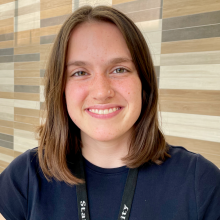
Claudia Phillips
Claudia is a first-year undergraduate student who intends to study bioengineering and ultimately pursue a career in research. Her interests include proteomics, the relationship between physiology and molecular biology, and novel biotechnologies in agriculture. In her free time, she enjoys coaching her local Science Olympiad team.
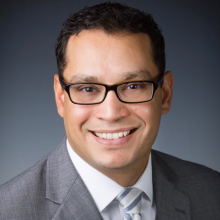
Nathaniel Roybal M.D., Ph.D.
Nate was a lab member from 2014 to 2016 and he continues to collaborate to this day. Nate is a Vitreoretinal Surgeon and Scientific Director of the Vision Research Center at Eye Associates of New Mexico and is an Assistant Professor of Surgery at the University of New Mexico. Nate received his undergraduate degree in Animal Science from New Mexico State University, followed by an M.D., Ph.D. at the University of New Mexico. His doctoral studies focused on gene regulation of vascular endothelial growth factor. He completed a residency in ophthalmology and postdoctoral fellowship at the Jules Stein Eye Institute, UCLA. His postdoctoral studies focused on gene therapies and visual cycle biochemistry. Nate completed a Vitreoretinal Fellowship at the University of Iowa Hospitals and Clinics. He remains interested in translational proteomics.

Luis Sabage
Luis joined the lab in 2022 as a visiting student researcher from Brazil. He is a medical student from The University of São Paulo, Bauru and is interested in ophthalmic clinical research with an emphasis in viral detection in tear samples.
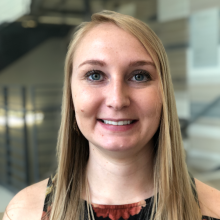
Kellie Schaefer B.S.
Kellie joined the lab in 2014 and completed her Ph.D. in genetics in 2020. She earned her bachelor’s degree in biology with a focus on genetics at the University of Iowa. Kellie’s research projects included dissecting the mechanisms underlying regulation of angiogenic factors in eye pathology as well as protease interactions and regulation. She was awarded an NIH F31 grant in 2015. She currently is a scientist working at Adverum.
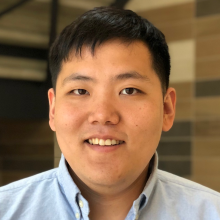
Young Joo Sun Ph.D.
In 2025 Young Joo took a position in industry. He joined the Mahajan Lab in 2019. He received his bachelor’s degree in systems biology from the Yonsei University, Republic of Korea, in 2013 and completed his Ph.D. in biochemistry from the University of Iowa in 2019. Young Joo’s research interests are proteomics, structural biology, high-throughput screening, and protein-protein interaction engineering. He is currently working on structural biology of eye disease proteins.
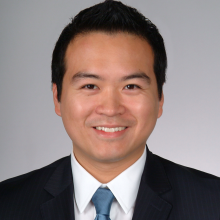
Peter Tang M.D., Ph.D.
Peter joined Dr. Mahajan’s lab as a clinical fellow in 2017. He earned a B.A. in Neuroscience at the University of Pennsylvania in Philadelphia, PA and completed both his M.D. and Ph.D. as part of the Medical Scientist Training Program at the Medical University of South Carolina in Charleston, SC. His graduate thesis explored the role of vitamin A metabolism in various inherited retinal dystrophies. Peter completed a transitional year internship at the Hennepin County Medical Center followed by ophthalmology residency training at the University of Minnesota, MN. He was at Stanford University 2017-2019 as a clinical fellow in Vitreoretinal Surgery in the Department of Ophthalmology. His research interests include inherited retinal dystrophies and molecular biology of vitreoretinal disease. He now practices in Minnesota.
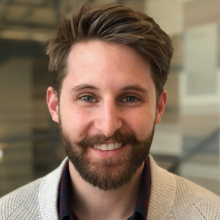
Marcus Toral M.D., Ph.D.
Marc is an M.S.T.P. student who joined the lab in 2015. Marc received his bachelor's degree in Zoology and Neuroscience from Miami University in 2013. Marc’s research uses biochemistry, genomics, and proteomics to investigate blinding eye diseases. His work is specifically focused on elucidating gene transcriptional networks involved in Autosomal Dominant Neovascular Inflammatory Vitreoretinopathy (ADNIV) with the aim of identifying pathways that could be targeted for the development of new treatments and therapeutics. Marc is also involved in microsurgery projects and the characterization of genetic mutations that lead to eye disease. He is pursuing a residency in ophthalmology at the University of Washington.
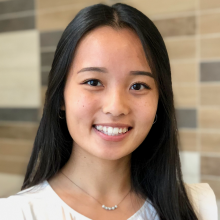
Jennifer Vu
Jen joined the lab in 2019 as a student researcher and is now a Life Science Research Professional. She earned her B.S. in Human Biology in 2021 and completed an undergraduate honors thesis in the lab researching macular holes. Her research focus is on the translational proteomics of ocular diseases using vitreous fluid and tear film.
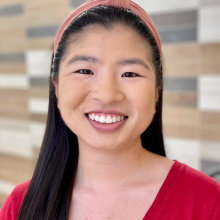
Elena Wang B.S.
Elena joined the lab in 2021 as a Life Science Research Professional. Prior to the Mahajan Lab, she was a research associate in Genentech's Biochemical and Cellular Pharmacology group where she developed ELISAs and mass spectrometry assays for pharmacokinetic analysis of preclinical samples. She earned her BS in biochemistry from UCLA in 2020 and plans to pursue a Ph.D. Her research focus is investigating retinal disease pathways through in vitro assays.
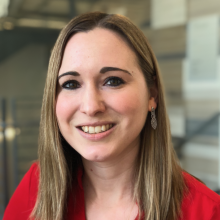
Katherine Wert Ph.D.
Katie became an Assistant Professor of Ophthalmology and Molecular Biology at the University of Texas Southwestern Medical School after her postdoctoral fellowship in the Mahajan lab. Her overall research goal was to discover and understand the mechanisms underlying neuroretinal disease and to develop novel therapeutics for these complex degenerative disorders using gene therapy, cell transplantations, and genome engineering technologies. She utilized gene editing strategies to create mouse models for human disease and studied specific mutations within human embryonic and induced pluripotent stem cells. Katie earned her Master of Science in Human Clinical Nutrition from Columbia University in 2009 and a Ph.D. in Nutrition and Metabolic Biology from Columbia University in 2013. She completed her first post-doctoral fellowship in genome engineering, stem cell, and developmental biology at the Whitehead Institute for Biomedical Research.
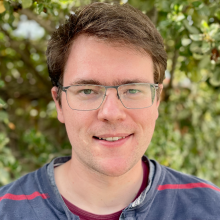
Julian Wolf M.D.
In 2025, Julian returned to Germany to continue his studies. He joined the lab in 2022 after completing medical school at University of Bochum, Germany and starting his residency in ophthalmology at the Eye Center at Medical Center at University of Freiburg, Germany, in 2019. Julian's research interests include high-resolution molecular profiling of vitreous and retinal diseases using transcriptomics and proteomics, along with bioinformatics pipelines as well as validation of biomarkers and therapeutic targets in animal models.
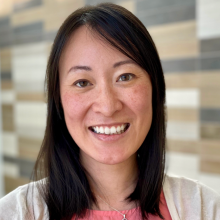
Jolan Wu D.O.
Jolan joined the lab in 2021. She received her osteopathic medical degree in 2019 at Pacific Northwest University with a focus in underserved and global medicine, and later developed an interest in studying eye pathology. Her research focuses on translational projects that develop therapeutic solutions for retinal diseases such as macular degeneration, diabetic retinopathy, retinitis pigmentosa, as well as rare diseases such as ADNIV. Jolan is proud to be a part of the Mahajan team and plans to emerge out of her training as an expert and educator to further inform and advance the field of ophthalmology - both scientifically and clinically.

Jing Yang M.S.
Jing joined the lab in 2017 as a Life Science Research Professional. She earned her MS in Bioinformatics at Northeastern University and her BS in Biochemistry at the University of Iowa. Jing’s research focuses on structural biology and bioinformatics.
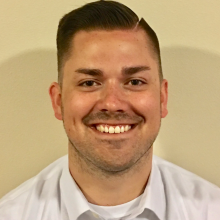
Ryan Vande Zande D.O.
Ryan was a member of the Mahajan lab from 2011-2013 while he earned his B.A. in Biology from the University of Iowa. He went on to Des Moines University where he is set to earn his Doctor of Osteopathic Medicine degree in May 2018. Upon graduation, Ryan will continue his education as a Pediatric resident at the University of Oklahoma.
